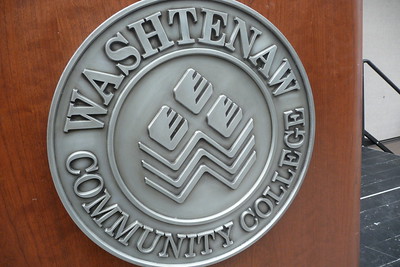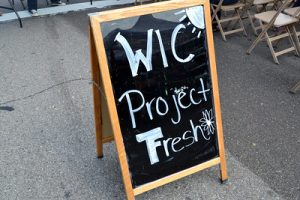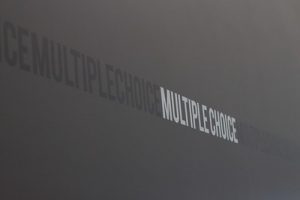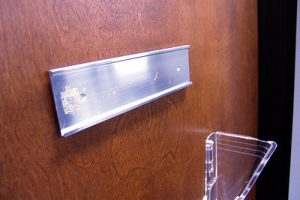In the November 3, 2020 election, three Washtenaw Community College Board of Trustee seats are open. There are four candidates for these seats. They are incumbents David DeVarti, Christina Fleming, Ruth Hatcher and challenger Martin Thomas. In an effort to allow Washtenaw County voters to learn more about the candidates for the WCC Board of Trustees, WCC Watch has prepared a series of questions for the candidates. Today, WCC Watch features the responses from Martin Thomas.
- WCCWATCH: In your opinion, what are the three biggest issues facing Washtenaw Community College in the next six years?
Martin Thomas: Ensuring WCC is responding to, is in a solid position to and remains relevant to the community’s success during these immediate, post pandemic times as well as the future.
Creating an institutional culture and environment that supports success for All, that transfers to our students success and an institution that drives that positive synergy into the community.
The willingness to challenge the status quo – we can and must do better at shifting to meet today and future needs, whilst working to reach back and pull those that have fallen behind forward.
- WCCWATCH: As a Trustee, how do you intend to address the issues you just identified?
Martin Thomas: It starts at home. I would recommend an internal assessment be conducted within the WCC Family as to its current culture and environment, as well as, to inquire if WCC has been meeting its commitment to “Staff Success”?. Post survey, work on any action plan to address any issues and / or see what else can be added to enhance what already is working. The community needs the WCC Family to be their best in-order to be of service to the community, so they can be at their best.
WCC will have to address the financial costs of the pandemic, I would recommend all projects not currently started be re-evaluated for their merit. I would challenge expenses that do not directly support WCC’s core vision and mission.
I would challenge WCC to think outside the box, to do more in what we do and how we do it “What do you call someone that went to WCC – Employed”. I would encourage greater coordinated teamwork with our community partners to provide core life skills and success pathways for our community members needing another opportunity in their pursuit of success.
- WCCWATCH: From your standpoint, what is the role of a WCC Trustee?
Martin Thomas: To consistently monitor the workings of the college, review and adjust policies to support meeting any current and future needs, as well as, any legal changes impacting the college. To be good stewards of the college and to the public’s trust, to maintain our focus and actions in relationship to the College’s Vision and Mission Statements. All whilst holding the accountable, accountable to doing the same.
- WCCWATCH: How did you develop this understanding?
Martin Thomas: By believing and following WCC’s Vision and Mission Statements, by respecting how the community supports the college, by the positive impact WCC has had on multiple individuals and their families, by being part of the internal workings of the college, by observing current and past leadership and board members actions and how those actions impact the community as a whole.
- WCCWATCH: Who are WCC trustees primarily accountable to?
- WCCWATCH: If elected, what are your priorities for WCC in the coming six years?
Martin Thomas: To evaluate and implement changes to WCC’s core foundation of policies, business practices and employee readiness, in-order to meet the current and future needs of our communities.
To expand and diversify our services to the constituents of Washtenaw County, in-order to place them in the best position to succeed.
- WCCWATCH: How did you develop these?
Martin Thomas: Working at WCC for 45 years, paying attention to the impacts that occur under different leaderships styles, followed by our current events – it’s crystal clear to me that we’ve missed some golden opportunities to improve upon our core vision and mission – the success of our students, staff and community.
- WCCWATCH: How did you develop these?
- WCCWATCH: According to enrollment statistics, a large portion of WCC’s enrolled students come from out-of-district – specifically Livingston County and to a lesser extent, Lenawee County. Do you support a proposal to seek expansion of the district boundaries to include Livingston County and/or Lenawee County, even if that meant opening a new permanent campus in one or both of those locations?
Martin Thomas: Not at this time, pre-pandemic Washtenaw County had around 16% of its residents at poverty level; to me this is unacceptable. As WCC was voted into existence, given a mission and vision to follow and has continuously been supported by the passing of millages and bond initiatives, as well as various types of donations – we have an obligation to best serve our county residents at a higher level, while creating success opportunities for them and others who wish to part of, regardless of where they live.
- WCCWATCH: Despite the fact that WCC collects the third-highest property tax assessment for a community college in the State of Michigan, WCC now has a structural deficit. For the purpose of answering this question, set aside the reason(s) for this condition. To minimize the structural deficit going forward, do you support the exclusive use of tax-backed bonds for future construction projects, which would create a separate voter-approved revenue stream for each project, instead of revenue-backed bonds, which rely on the existing operating millage for repayment?
Martin Thomas: I believe that a blend of both funding streams would best serve the college and college community. Clearly some parameters and thresholds would need to be measured and implemented – which ultimately would guide current and future servants to the college community as a whole – to me it’s basic accountability with responsibility and having safeguards in place to protect our stakeholders’ interests.
- WCCWATCH: Despite the recent layoffs, the size of the WCC administration has grown substantially since 2011 while the size of the professional, full-time faculty and the unduplicated headcount have remained relatively constant. To restrict the future growth of the WCC administration, do you support either a fixed limit on the size of the administration or a formulaic limit tied to the size of the full-time faculty?
Martin Thomas: I prefer not to set fixed numbers or limits regarding personnel levels by classifications or groups, as I believe it may limit our ability to be flexible in servicing or meeting our student, staff and community needs. That is not to say that staffing levels should not be closely monitored, evaluated, or perhaps capped by funding levels. I do believe a disproportionate amount of administration within a service organization would lead me to question the executive leadership as to why.
- WCCWATCH: WCC has a growing number of buildings that are deteriorating due to “deferred maintenance.” Delaying required maintenance only increases the eventual cost of repairs. For example, nearly 90% of the proposed budget for the Morris Lawrence renovation is required to rectify issues that could have been addressed earlier at a much lower cost. These issues include water leaks, mold growth, HVAC system failures, heaving concrete and bricks falling off of the facing at the building’s East entrance. Do you support the adoption of an “Asset Protection” policy that requires the President of WCC to make certain that all College’s buildings achieve a Facilities Condition Index (FCI) of “GOOD” as a condition of continued employment?
Martin Thomas: I do not. I would seek a different approach, as I believe many core structural and functional issues start with the initial design and construction phases. Sticker shock – leads to value engineering changes to the original outlay (design changes to get to a lower financial cost). Those changes compounded by any future renovations to the space; compromises the original design and functionality of the structure. It is also critical to establish asset life cycle maintenance and replacement plans and incorporate them into your maintenance and financial plans. All said, and in short – I believe there is opportunity for improvement, and as a board member would not only seek them, but demand them.
- WCCWATCH: Similarly, the State of Michigan will match up to 50% of the cost of qualifying construction projects on the campus of a Michigan community college. Maximizing state matching funds minimizes the cost of a project to the local community. To qualify for the full match on renovation projects like the one proposed for the Student Center Building, WCC would need to address all deferred maintenance issues before submitting a funding request to the State. Do you support a requirement that all future capital projects – either for new construction or renovation – submitted to the State of Michigan for funding consideration must qualify for a 50% match?
Martin Thomas: Not at this time.
- WCCWATCH: What else would you like to say to the voters in Washtenaw County about WCC or your candidacy as a Trustee?
Martin Thomas: Simply that I care. As a college employee of 45 years, I feel an obligation to repay the college and community for allowing me the privilege and honor to be of service to them. That I will do my best to place WCC in a position to be part of their success. That I have peaked to influence for the greater good, in my current role and that I am ready and willing to do so at the next level – as their WCC Trustee.
Martin Thomas: Our stakeholders – The Residents of Washtenaw County and Our Students.
—
WCCWatch: David DeVarti | WCCWatch: Christina Fleming | WCCWatch: Ruth Hatcher
Martin Thomas also completed a questionnaire at Vote411, which you can read here.
Photo Credit: Rex Roof , via Flickr




















